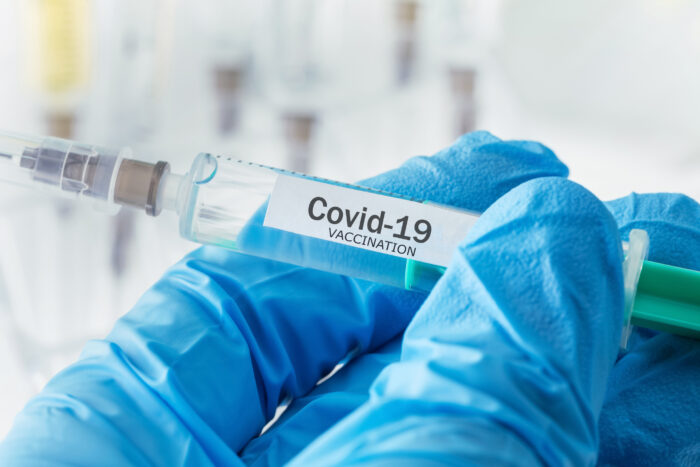
The Covid-19 pandemic has caused a significant disruption in cancer care due to missed screenings, biopsies and surgeries that further delayed diagnoses for certain cancers.
Now with vaccinations underway, updated guidance has been issued regarding cancer patients and Covid-19 vaccinations – these will bring us closer to addressing the effects that the pandemic has had on cancer care. As the leading cause of cancer-related deaths among both men and women in the US, lung cancer outcomes, in particular, have been heavily affected by Covid-19 worldwide.

Health Benefit Consultants, Share Your Expert Insights in Our Survey
Luca Dezzani Luca Dezzani, MD is a medical doctor with extensive healthcare experience as a physician in clinical practice and in the pharmaceutical industry. He practiced as a physician in Hematology and Internal Medicine before joining Novartis Oncology where he served in roles at national, regional, and global levels in Europe and North America. More […]
Smoking instances have gone up since the onset of the pandemic – a risk factor that has shown to cause up to about 90% of lung cancer deaths in the US. Delays in diagnoses due to missed screenings and healthcare visits may signify a difficult road ahead for a disease may be much harder to treat in advanced stages.
But the impact of Covid-19 on lung cancer has not been limited solely to new diagnoses. Those receiving cancer treatment during the pandemic have also faced challenges associated with staying on treatment, largely attributed to fear of contracting the virus while at healthcare facilities. Now that relief may finally be on the horizon with three approved vaccines available (though the J&J vaccine distribution is currently on hold), patients and healthcare providers are facing a new set of questions regarding vaccinations while undergoing cancer treatments.
This is why the recently updated guidance for cancer patients during the Covid-19 pandemic is critical in helping healthcare professionals ensure patients successfully navigate the vaccination process should they choose to do so while continuing their treatments.
First published in January regarding the Covid-19 virus and its interaction with different cancer treatments, these guidelines were recently updated to include recommendations around the approved Covid-19 vaccines and recommend that all patients be vaccinated regardless of the type of cancer treatment they are receiving. The guidelines also advocate that cancer patients be considered a priority group for the vaccine rollout.

A Deep-dive Into Specialty Pharma
A specialty drug is a class of prescription medications used to treat complex, chronic or rare medical conditions. Although this classification was originally intended to define the treatment of rare, also termed “orphan” diseases, affecting fewer than 200,000 people in the US, more recently, specialty drugs have emerged as the cornerstone of treatment for chronic and complex diseases such as cancer, autoimmune conditions, diabetes, hepatitis C, and HIV/AIDS.
The newly updated guidance states that, “Covid-19 vaccines should be given to all cancer patients, as well as household contacts and caregivers, when they are eligible to receive the vaccine; the committee has no preference for any of the approved vaccines.”
The guidelines also address immunotherapy (IO), which has been a highly debated topic in the oncology community throughout the pandemic due to the virus’s effects on the immune system. Not only did the initial guidelines note that receiving IO treatment was not associated with increased severity of Covid-19 infections, but the updates recommend that patients currently receiving IO treatment take any of the three approved vaccines as soon as they are available to them.
For healthcare professionals, it is critical to take the time to fully understand this guidance to ensure patients and caregivers have all the information available and relevant to them to make informed decisions regarding their course of treatment. Navigating Covid-19 in the context of cancer care has been a challenging endeavor for both patients and healthcare providers. This guidance should be leveraged as a useful tool and point of discussion in upcoming visits.
When discussing this guidance, physicians must also be prepared to answer questions with regards to patients’ personalized treatment plans – for example this new guidance recommends that imaging be postponed for four to six weeks after vaccination as some peoples’ lymph nodes swell after inoculation. How patients plan to receive these vaccines should also be discussed among care teams, as physicians may be able to suggest community resources that are available to help.
When it comes to addressing the effects that Covid-19 has had on cancer care worldwide, healthcare professionals must stay abreast of the latest guidance to provide accurate, helpful information around vaccines. Doing so may help care teams achieve the best possible outcomes for patients who are already at risk. Medical professionals should encourage their peers to use these updated guidelines as a touchpoint with their patients to ensure they have a plan in place that is personalized for their specific treatments regarding the Covid-19 vaccine.
Photo: Teka77, Getty Images
Luca Dezzani, MD is a medical doctor with extensive healthcare experience as a physician in clinical practice and in the pharmaceutical industry. He practiced as a physician in Hematology and Internal Medicine before joining Novartis Oncology where he served in roles at national, regional, and global levels in Europe and North America. More recently, he built and led the US Oncology medical organization at Eisai. He has a strong expertise in oncology clinical development and medical affairs, and he is passionate about the application of technology to healthcare. Luca now leads the Immuno-Oncology Franchise within the US Oncology Organization at AstraZeneca.












